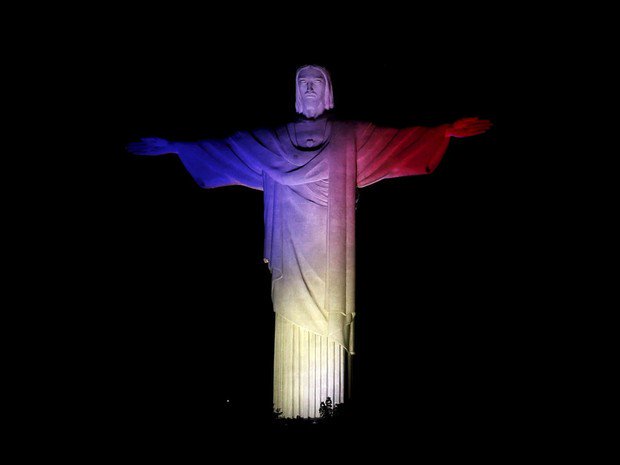Why Do We Seem to Care More for the French than Others?
Several stories have
pointed to mass killings around the world in recent years. Why does the
world seems so much more concerned about the Paris attacks?
Seven likely reasons why so many care about the people of Paris.
1. Identity.
It’s seems
personal. Many people identify with the people of Paris. Many people have been to Paris or
wish to go there. Regardless of reality, Paris- and therefore its people- represents love, romance, and
culture. Not a lot of world cities have the same attraction as does Paris. When Identification is active, threats seem more personal.
2. Family.
Under threat
conditions people look for allies and enemies. The French look like many other
Europeans who have settled large parts of the world occupied by Western powers (e.g., British,
Spanish, Dutch, German, Portuguese). Humans don’t spend a lot of time analyzing
situations when they are under attack. Perception is not governed by critical
thinking. We affiliate with people who look like ourselves--this is evident even in preschoolers.
3. Loyalty.
People care more
about family and close friends than others. The U.S. has a special relationship
with the French. The French helped the colonial rebellion against Britain. Many
U.S. soldiers were intimate with French women during the two World Wars—they
literally have French kin. Loyalty is emotional not rationale.
4. Our Religion.
It can hardly be
said that the French are very religious but the history of Europe and the
Americas is more closely tied to Christianity than to Islam or any other world religion.
The pictures of religious buildings and symbols in news stories about the Paris
attacks reveal a familiar landscape unlike those linked to other religions. It’s an emotional connection and not a rationale argument.
5. Common enemy.
Many of the
western powers are fighting the same enemy that attacked Paris. In a fight,
humans naturally embrace those “for us” and identify others as “against us”
even if close inspection were to reveal otherwise. Having a common enemy helps us make sense of things. Read more on the common enemy effect.
6. Investment.
The U.S., UK and
many allies of the French invested heavily in France during the two World Wars.
So many allied soldiers died, many more family members grieved, and substantial
sacrifices were made to support the war effort. People care more when they or
their family have made substantial investments in people and causes.
Investments are not often evaluated on a rationale analysis. Instead, emotions play a role in weighing the value of many investments.
7. Familiarity.
The response of
the U.S. is understandable given the familiarity with public shootings. A study
indicates that the U.S. has more public mass shootings than most countries
(31%) despite only having 5% of the world’s population. Americans are used to
hearing such horrific news and responding generously to the victims.
Caring Beyond Paris
There may be other reasons so many care more about what happened in Paris than the killings in other places. People respond to tragedy in various ways but the responses are driven by emotion and various degrees of empathy.
Feeling empathy for people who suffer a similar fate as did those in Paris but appear different in salient ways requires considerable effort. Rational arguments indicating why we ought to care about all humans deserve a hearing but they won't work near as well as stories that evoke empathy.
Feeling empathy for people who suffer a similar fate as did those in Paris but appear different in salient ways requires considerable effort. Rational arguments indicating why we ought to care about all humans deserve a hearing but they won't work near as well as stories that evoke empathy.

Comments
Post a Comment